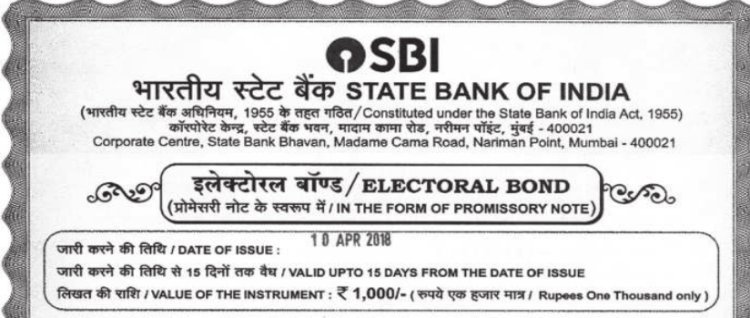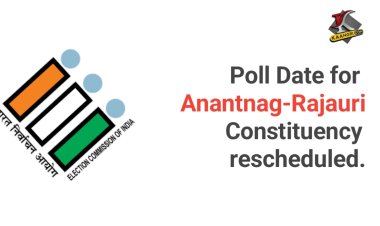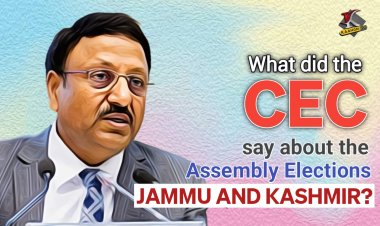Future Gaming, Keventer Group, Megha Group Among Top Electoral Bond Donors: EC Data reveals

The Election Commission of India (ECI) made the electoral bond data public on Thursday, following orders from the Supreme Court of India. This release came after the State Bank of India (SBI) submitted the details to the election body on Tuesday
According to the published list, top donors to political parties encompass major corporations such as Future Gaming, Megha Engineering, Grasim Industries and Piramal Enterprises. The list also features Apollo Tyres, Lakshmi Mittal, Edelweiss, PVR, Keventer, Sula Wine, Welspun, and Sun Pharma. Torrent Power, Bharti Airtel, DLF Commercial Developers, and Vedanta Ltd are also prominent contributors. Muthoot Finance Limited, Pegasus Properties Private Limited, Finolex Cables Ltd, Lakshmi Niwas Mittal, Edelweiss Housing Finance Ltd, GHCL Ltd, Jindal Poly Films Limited, and ITC Limited also make appearances on the list.
According to data released by the Election Commission of India (ECI), Future Gaming has purchased 1,368 electoral bonds valued at ₹1 crore each since 2019, totaling ₹1,368 crore. Qwik Supply Chain Private Limited, Haldia Energy Limited, Vedanta Limited, Essel Mining and Industries Ltd, Western UP Power Transmission Company Ltd, Keventers Foodpart Infra Limited, Madanlal Limited, and Bharti Airtel Limited were among the top 10 donors on the State Bank of India's electoral bonds list released by the EC today.
The top recipients of funds through electoral bonds are BJP, Congress, AIADMK, BRS, Shiv Sena, TDP, YSR Congress, DMK, JDS, NCP, Trinamool Congress, JDU, RJD, AAP, and SP.
In a recent report published by the Reporters Collective, startling revelations have come to light regarding Future Gaming and Hotel Services Private Limited, a little-known company based in Tamil Nadu. This company, which has largely operated under the radar, has now emerged as the largest donor of electoral bonds to political parties, raising significant concerns and prompting calls for further investigation.
Unprecedented Contributions:
Future Gaming has made headlines by purchasing electoral bonds worth a staggering Rs 1,368 crore since April 2019. What's even more astounding is the revelation that, in a single year, the company donated six times its profit as contributions to political parties. Such massive financial backing has sparked curiosity and scrutiny into the company's background, operations, and potential political affiliations.
Background and Ownership:
Coimbatore-based Future Gaming primarily operates in the lottery business. Corporate records reveal that the company's directors are Martin Santiago and Manickka Gowder Sivaprakash. Of particular note is Santiago Martin's extensive network of over 100 privately held firms, many of which are purportedly real estate entities. Additionally, reports suggest that Santiago's son, Charles Jose Martin, has ties to the Bharatiya Janata Party (BJP), adding another layer of complexity to Future Gaming's political connections.
Under Investigation:
Despite its significant electoral bond contributions, Future Gaming has not escaped the scrutiny of law enforcement agencies. In April 2022, the Enforcement Directorate (ED) attached movable assets worth Rs 409 crore in a money laundering investigation involving the company. Santiago Martin himself has been embroiled in a money laundering case since 2016, with over Rs 910 crore worth of his properties attached by the ED.
Financial Discrepancies:
The disparity between Future Gaming's donations and its actual profits raises serious questions about the company's financial practices. In various financial years, the company's donations through electoral bonds far exceeded its profits before tax, indicating potential irregularities in its financial dealings.
Policy Impact:
The revelations surrounding Future Gaming's electoral bond contributions underscore broader concerns about the transparency and integrity of the electoral funding system. The removal of caps on corporate donations by the BJP government in 2017 has raised alarms about the potential for undue influence and opacity in political financing.
As the public grapples with the implications of Future Gaming's unprecedented electoral bond donations, it is imperative for authorities to conduct thorough investigations into the company's operations and connections. Moreover, policymakers must revisit electoral funding regulations to ensure greater transparency and accountability in the democratic process.
The Reporters Collective's report sheds light on a critical issue at the intersection of politics, business, and governance. It underscores the importance of investigative journalism in holding power to account and uncovering truths that may otherwise remain hidden from public view. As the story continues to unfold, it serves as a reminder of the ongoing need for vigilance and scrutiny in safeguarding the principles of democracy and transparency
Beyond Future Gaming: A Pattern Emerges
The report doesn't stop at Future Gaming; it unveils a broader pattern of dubious electoral financing practices. From the Keventer Group's disproportionate donations following ED inquiries to Megha Group's substantial contributions and the Reliance-linked firm's perplexing financial maneuvers, a troubling trend emerges. Among the top 20 electoral bond donors, the involvement of RPSG firms flagged by the CAG for coal auction rigging further deepens the web of intrigue.
The investigation sheds light on the intricate nexus between corporate interests, political influence, and regulatory oversight. It underscores the imperative for a systemic overhaul of electoral funding mechanisms to safeguard the democratic process from undue influence and ensure accountability at every level.
The Electoral Bonds Controversy, spearheaded by revelations surrounding Future Gaming and echoed in the broader landscape of corporate political donations, serves as a clarion call for systemic reform. It's a reminder that the health of democracy hinges on transparency, accountability, and the unwavering commitment to uphold the public trust. Only through rigorous scrutiny, robust regulation, and unwavering journalistic integrity can we safeguard the sanctity of democratic institutions and preserve the essence of participatory governance for generations to come.










